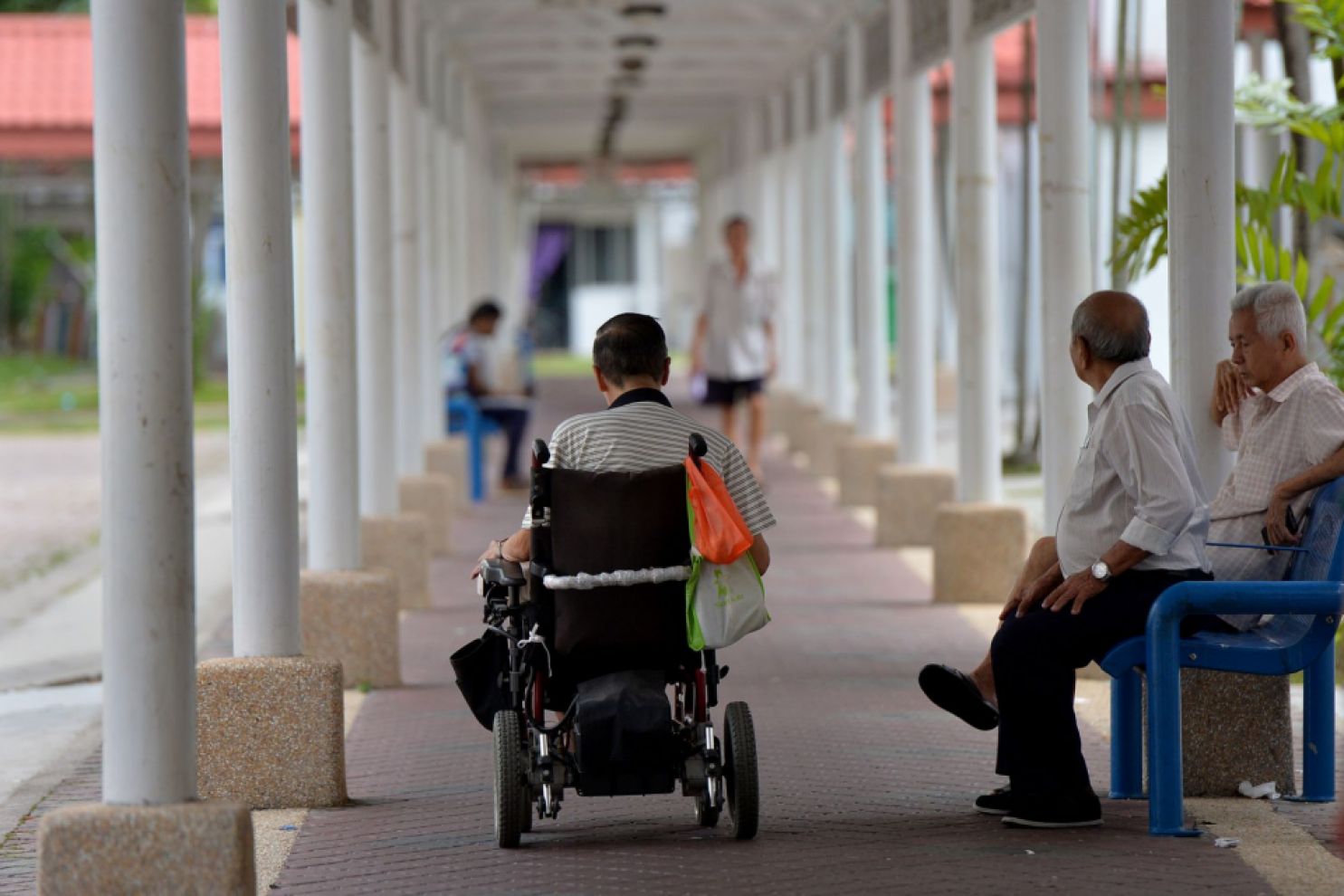Singapore firms see silver lining in eldercare industry
AS Singapore strives towards its Smart Nation vision, it cannot escape the fact that it is also an ageing society.
But rather than view the silver tsunami as a disaster to be averted, industry players say it is a wave that local businesses should catch.
By one estimate, the ageing market sector in the Asia-Pacific is projected to reach US$3.3 trillion by 2020, making it a potential sunrise industry. An increasing number of small and medium sized enterprises (SMEs) are eyeing a slice of the pie as they tap the latest technology trends such as the Internet of Things and data analytics to create innovative eldercare solutions.
This dovetails with the government’s drive to encourage the elderly, who are healthier and in many cases wealthier than previous generations, to age in place and maintain their independence for as long as possible.
Ong Jeong Shing, investment director of Venturecraft Group, said: “Consumers are not only the elderly themselves, but more importantly, their children who have the spending power and are constantly worried about the well-being and health of their parents.”
This is “good news” for eldercare technology development and adoption, he said. Venturecraft invests in startups in the medtech, biotech and digital health sectors.
Janice Chia, founder and managing director of Ageing Asia, a social enterprise and consultancy, said: “To overcome the manpower challenges of an ageing population, the next opportunity is technology innovations that enable older adults to age at home. This is the opportunity for healthcare monitoring technologies, assistive living technologies and smart living technologies.”
She noted that in Singapore, local firms have been focusing on those areas, as well as home care services and vendor sourcing apps.
Businesses tell BT that while there has been growing interest in eldercare technology, it is early days yet as far as Singapore is concerned.
Cadi Scientific, which has been in the market for 14 years, designs and manufactures wireless sensing devices used in hospitals for tracking and monitoring patients, staff and assets. Its director and chief marketing officer, Dim Soh Min, told BT: “Locally, we have not felt the pickup of telehealth yet, but we think it will.” The company is collaborating with a Japanese medical device manufacturer to offer blood pressure monitors with Bluetooth connectivity, which can connect easily with smartphones.
It is also developing a new health data interface in its products to allow the sharing of vital signs data with other platforms. Vital signs data can then be taken at home and shared with doctors when needed.
Another player in the telehealth space is myHealth Sentinel, which offers digital health platforms such as their cloud-based “Telemetrix+” service – a remote vital signs monitoring service which enables the medical provider to monitor elderly patients in their own homes.
It recently added data analytics to the service, which could potentially derive insights from the patient data collected on the patient’s health risk and behaviour. It cites the National University Hospital as its biggest customer.
Technology may be advancing at a rapid pace, but there still remains a need for caregivers. Many startups have therefore launched mobile apps to deliver homecare services, resulting in a trend known as the “Uber-risation” of caregivers.
One company that is leading the pack here is Caregiver Asia. It offers real-time booking of care services either online or through its app.
Its customers can also book medical professionals to bring loved ones for doctor’s appointments, or even specialised medical services such as occupational therapists and physiotherapists.
While CEO Yeo Wan Ling has observed quite a proliferation of businesses in this caregiving space, she believes that the demand will continue to increase.
The company has leveraged technology to improve efficiency and accountability, such as geolocation capabilities for caregivers to clock in and out of services, and securely stored patient medical records on their platform.
But even as robotics and advances in technology provide caregivers with some relief, Ms Yeo said that technology will never truly replace people. “Our view is that the personal touch or human assessment is an integral part in optimising caregiving.”
Despite the potential in the eldercare space, the biggest obstacle businesses here face is the slow rate of adoption due to relatively high costs and unfamiliarity.
Industry players say the government, with its economies of scale, can take the lead by funding pilots or trials in hospitals with many of these cutting-edge technologies. This will give consumers confidence to embrace new products and services. A higher pickup rate may drive down costs and companies will be motivated to come up with better, more innovative eldercare solutions.
Businesses also need to think international if they want to be viable.
Venturecraft’s Mr Ong said: “The local market is not big enough to become sustainable in the long run. In addition to the local market, they should expand overseas right from the get-go in order to tap the full potential of the global ageing market.”
Perhaps most crucially, enterprises need to consider their long-term business models and strategies if they want a slice of the pie.
William Chew, managing director of myHealth Sentinel, noted: “No doubt it will be a big industry with room for lots of different players. However, designing appropriate and scaleable business models will be the key to success.”
Source: http://www.businesstimes.com.sg/sme/singapore-firms-see-silver-lining-in-eldercare-industry


 Thailand
Thailand




